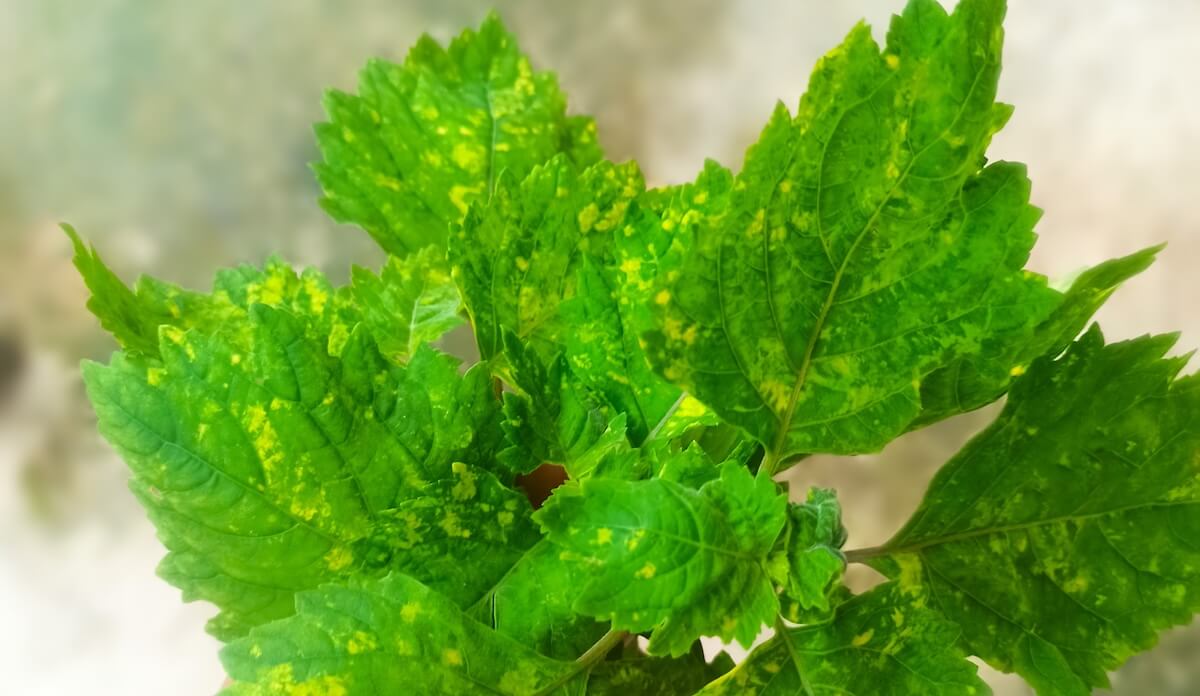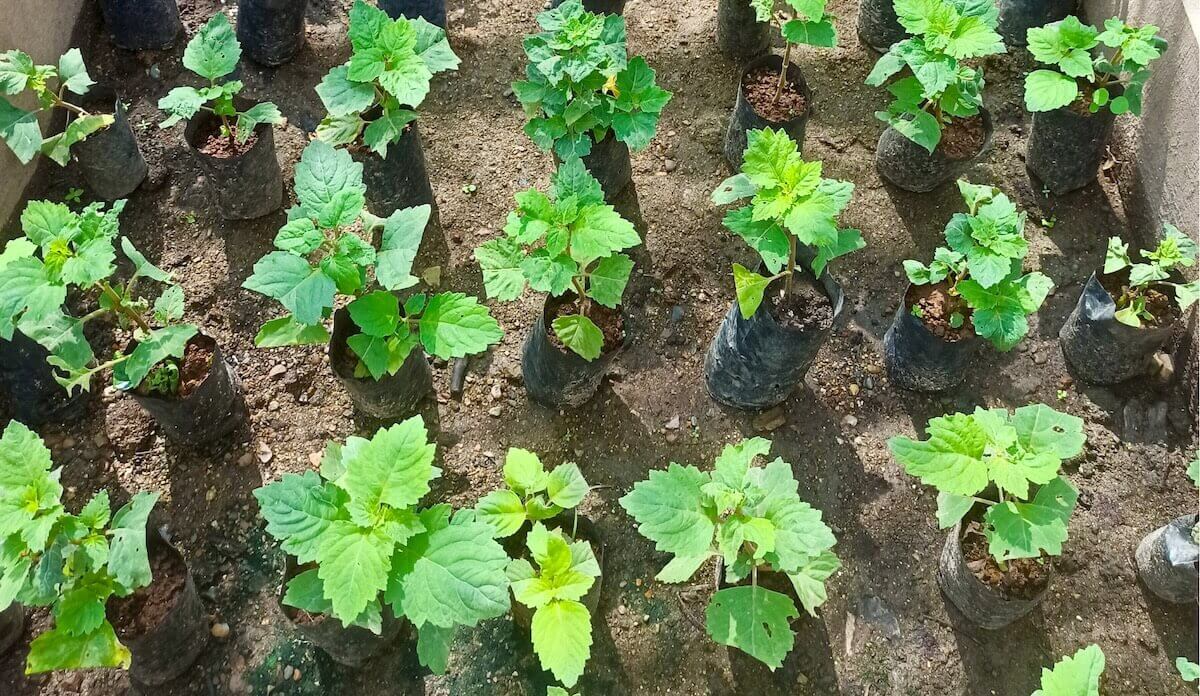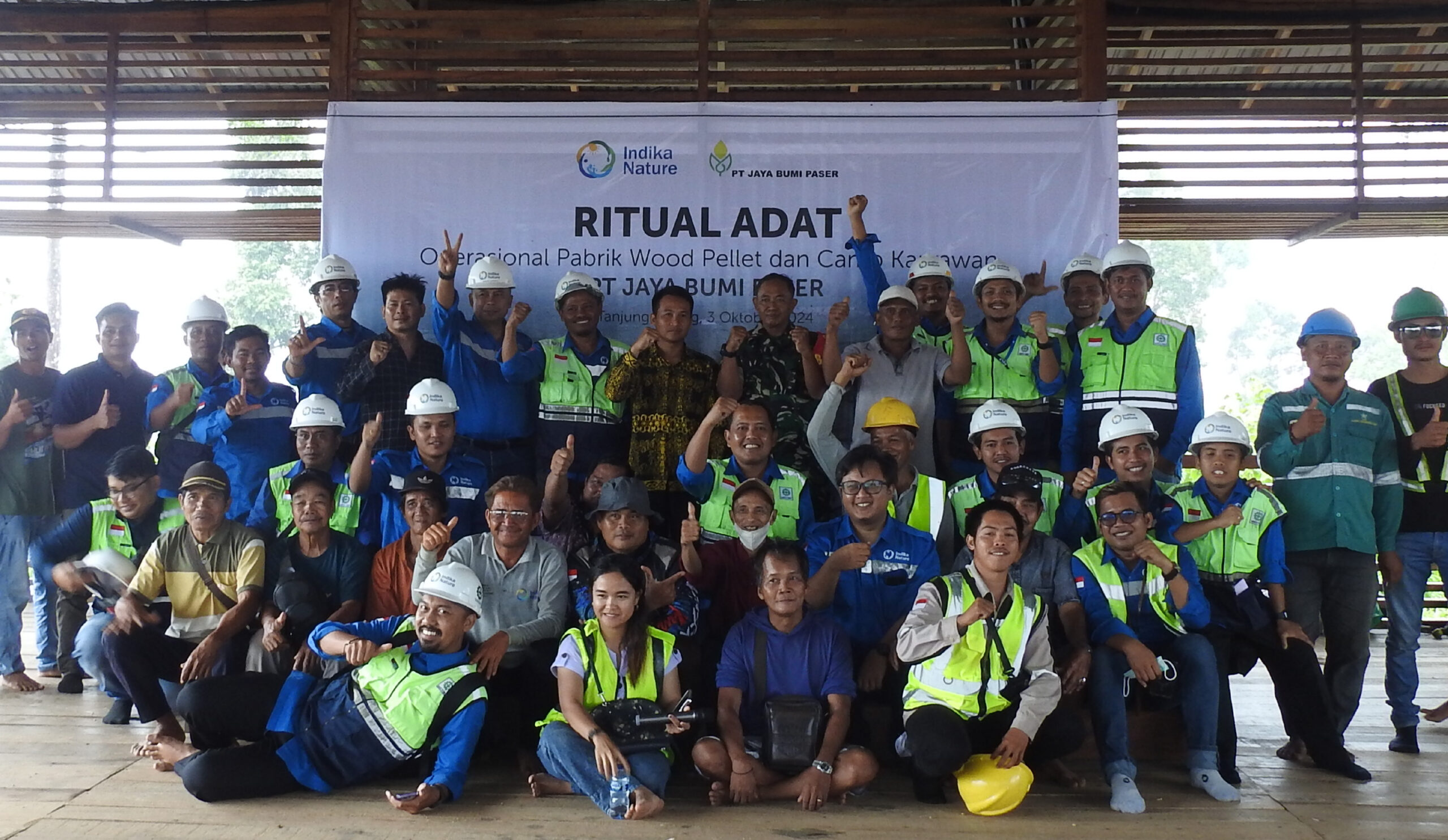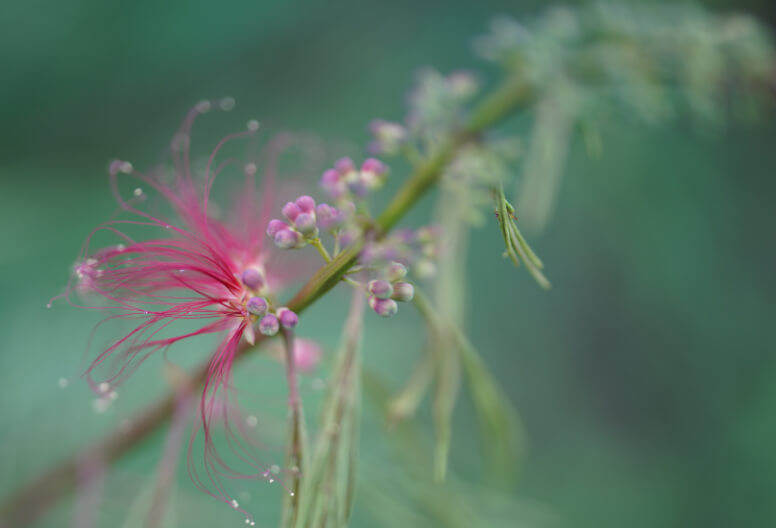Patchouli: Commitment of Regenerative in Agriculture Perspective
In the heart of Telaga Mas Kalimantan, our story of patchouli agriculture unfolds with a commitment to regenerative practices that impact our environment and community. We encountered a challenge when the patchouli seeds received from our supplier, which were expected to come from superior mother plants, showed signs of infection from harmful bacteria: Ralstonia solanacearum and Erwinia caratovora.
The infected seedlings displayed clear symptoms, including wilting, darkening and rotting at the roots and base of the stem, and the peeling of the skin. Yellowing leaves, withering, and eventual death marked the plants’ struggle. When infected roots or stems were cut and soaked in water, masses of bacteria emerged, confirming the severity of the situation.
In alignment with our dedication to regenerative agriculture, we refrained from using chemical fungicides or pesticides, despite their quick resolution potential. Instead, we chose to separate the healthy seeds from the infected ones and adjust the growth conditions by reducing humidity and increasing plant spacing. Our team also sought to develop a natural biofungicide tailored to combat the specific bacteria attacking our patchouli seeds.
Our approach is rooted in our unwavering commitment to sustainable and ethical agricultural practices. We could have taken an easier route, but we remain steadfast in our dedication to preserving the health of our soil, water, and ecosystem. Through these regenerative efforts, we strive to achieve a balance that nurtures both our plants and our planet, forging a path forward for a more sustainable future.





